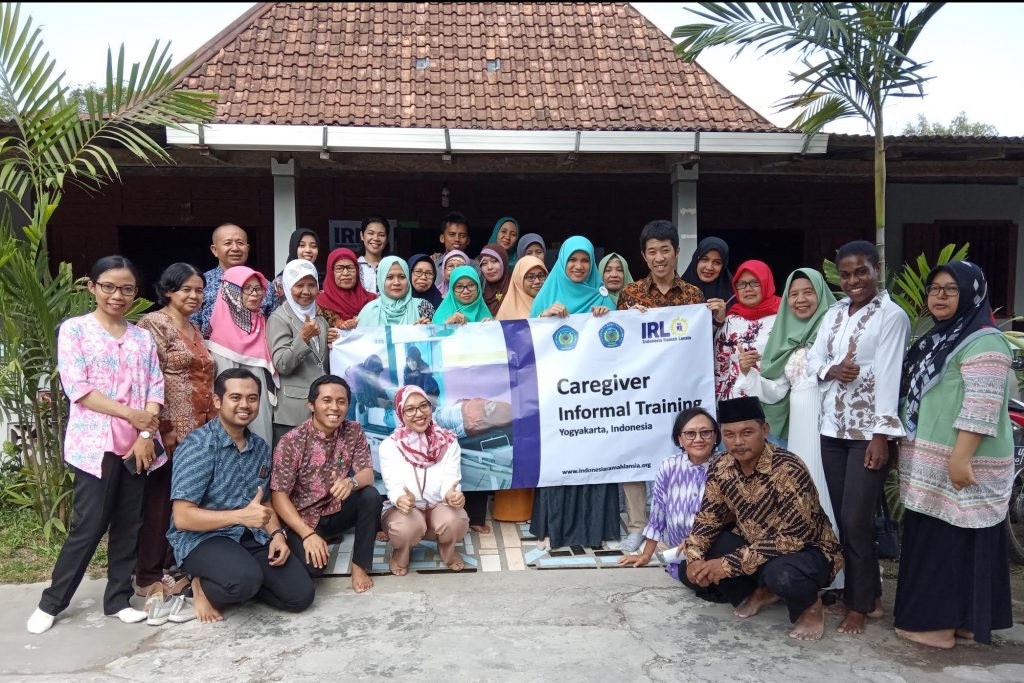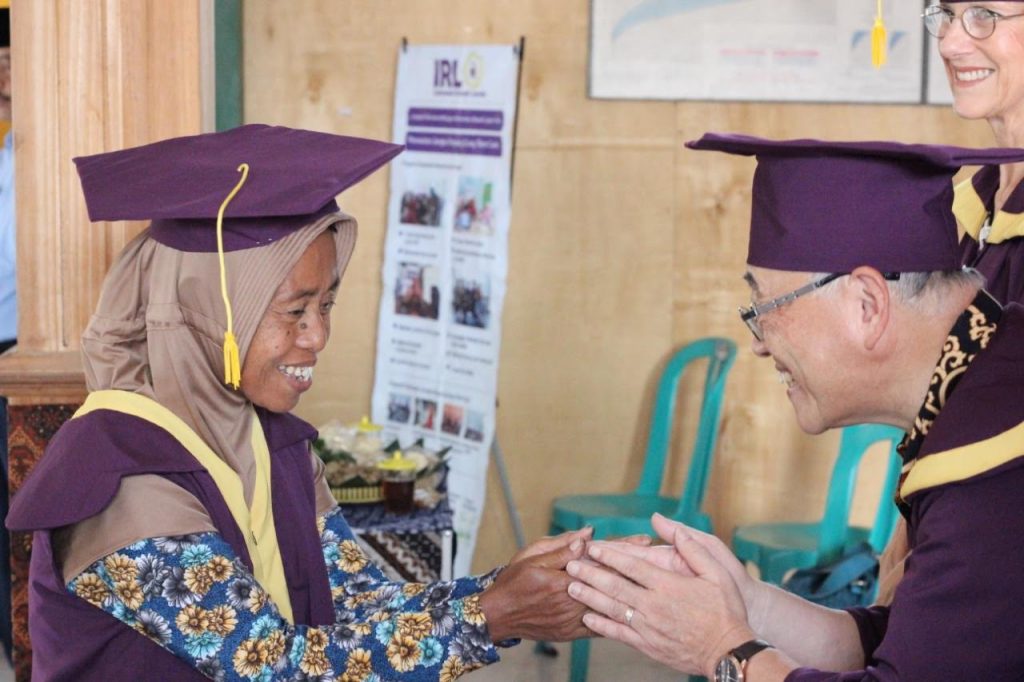2020 HAPI 2nd Prize Winner
Promoting healthy and active aging will require empowering older people with the knowledge they need to make healthy decisions, prevent disease, and maintain their independence. The Indonesia Ramah Lansia (IRL) Foundation has been a leader in developing a range of community-based education programs for both older people and their caregivers with a focus on creating age-friendly communities. Their programs have seen considerable success in providing older people with the tools they need to live healthy, independent lives and have been adopted in numerous locations throughout Indonesia.
The IRL Foundation’s Elderly-Friendly Community Program is based in Pleret Village in the Bantul Region of Yogyakarta, a province with one of the highest proportions of older people in Indonesia. The foundation realized that the elderly population in the village often lacked knowledge on health and disease prevention, with just over half of them having received little or no formal education. In response, they developed a series of programs including a senior school, a community caregiver training program, and a Dementia Care Corner to meet this gap and move toward their goal of creating an elderly-friendly village.
The senior school is free of charge and operates an integrated curriculum that utilizes practice, games, and gymnastics to meet the health, social, economic, psychological, and spiritual needs of participants. Participants come away from the school with improved knowledge on how to maintain their independence and prevent degenerative diseases. Upon completing the program, the participants go through a graduation ceremony and receive rewards recognizing their achievements. This activity has seen widespread success, rapidly growing to encompass 1,675 participants in 29 villages across the Bantul region. By creating textbooks and education modules, the foundation has made it easy to replicate the school, and it has also been adopted by several provinces around Indonesia, including West Java, East Java, and East Nusa Tenggara.
The program is not only focused on older people, but also provides training for family members and other informal caregivers, who are oftentimes overlooked. This takes the form of a one-year training course for caregivers who work with older people who have moderate to total dependency conditions. The training is focused on allowing caregivers to better support older people in their Activities of Daily Living (ADLs) and Instrumental Activities of Daily Living (IADL’s). This program has seen success in improving the quality of life for the older family members who are being cared for. For example, one participant was caring for his wife, who had been bedridden for ten years following a bike accident, and after implementing various activities learned during the training program she is now able to sit up by herself.
The final aspect of the program, the Dementia Care Corner, or DDC, is modeled on the Indonesian Posyandu, which are clinics that provide education for mothers and children with a focus on maternal and child health. The DCC combines elements of both caregiver training and the senior school, providing dementia care and prevention services for older people and their families. These are held once a month and include activities such as puzzles, art therapy, and tongue exercises, as well as counseling services. The DCC has improved awareness about the risks of dementia and has meant that family members of older people with dementia are able to be more patient when providing support and treatment.
A central reason for the success of the IRL Foundation’s programs has been the work they do with the local community. Indonesia still has a relatively young population compared to other countries in Asia; in 2019, only 6 percent of the population was over the age of 65.[i] This has meant that for many communities in Indonesia, caring for older people has not yet become a priority issue. As such, in order for their programs to succeed the IRL Foundation has had to work closely with community leaders to garner their support for the project. The community commits to creating an elderly-friendly village, meaning that they will work to provide facilities such as elderly-friendly parks where the elderly and children can be active, elderly nutrition gardens and so on. In particular, they worked with the Puskesmas, a kind of community-based primary healthcare facility, to disseminate information about the need to improve people’s knowledge on health and other issues for older people. By involving the community and having them act as facilitators for the programs, the foundation has also improved its sustainability.
KEYS TO SUCCESS
- Focus on community empowerment and good communication with community leaders has ensured the community is involved and invested in the programs
- Draws on existing community-based care models for primary care and maternal and child health in order to serve both older persons and caregivers
- The elderly school treats participants not just as the object of the activities but as the subject as well, encouraging them to become teachers for others
- Training materials and modules and a book of lessons learned have made it easy to replicate the program nationwide



